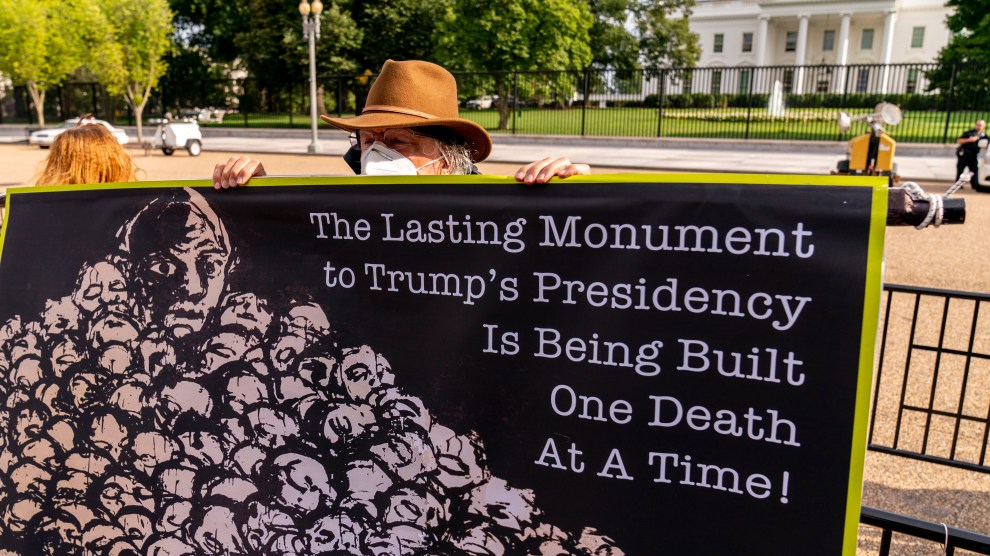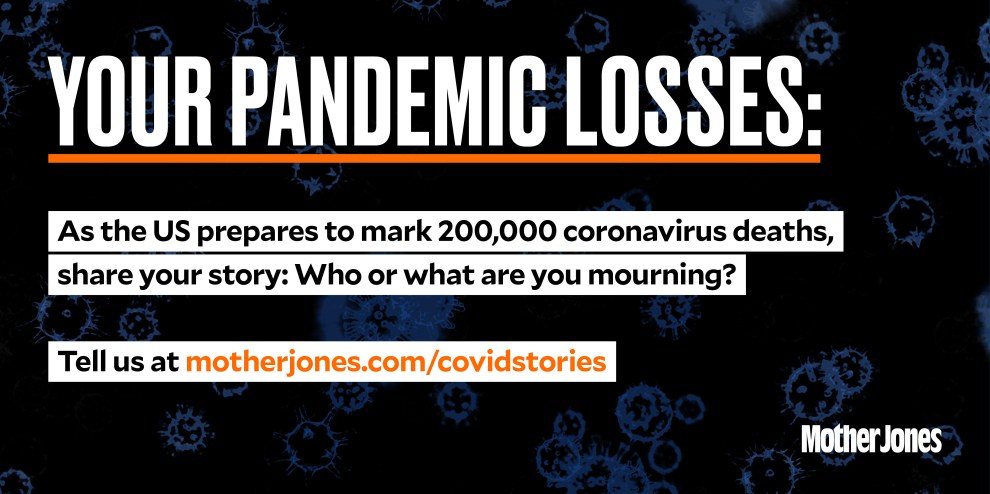
A man stands in Lafayette Square outside the White House on the fourth night of the Republican National Convention.Andrew Harnik/AP Photo
The nation has reached a tragic milestone: By some counts, 200,000 Americans are dead from COVID-19.
It didn’t have to be this way. Public health experts, scientists, physicians, and policy experts have shown us the way forward—and yet our leaders still aren’t listening. Over the past few months, for our series Pandemic-Proofing America, we’ve asked experts from many disciplines how best to protect America against infectious disease outbreaks in the future. When it became clear that we’d reach 200,000 COVID-19 deaths, we got back in touch with a few and asked them a single question: In your opinion, what’s the one most important thing our nation could have done differently to prevent this tragic outcome?
Here are some of their answers:
Andy Slavitt, former acting administrator for the Centers for Medicare and Medicaid Services under President Obama: Preparation was our first chance. When that failed, a national strategy was our next option. When that failed, a humane and unified approach was our next option. If all we have left are miracle cures, that’s a nation that needs to look at itself in the mirror. Read our Pandemic-Proofing America interview with Slavitt here.
Uché Blackstock, emergency room physician and founder of Advancing Health Equity, a racial justice consulting practice: The most important thing this administration could have done is listen to public health experts. This virus has been able to run rampant through our communities because science has been ignored and public health authorities have been sidelined. We’ve seen what happens in other countries when their leadership supports and endorses the most basic infection prevention measures, but this administration could not even do that. So here we are, with a pandemic still raging, waiting for a safe and effective vaccine. Read our Pandemic-Proofing America interview with Blackstock here.
Tom Frieden, former head of the Centers for Disease Control and Prevention under President Obama: A successful US response would have prioritized an organized, science-based approach which followed the basic principles of communication in an emergency. Organized: with clear, coherent, unified leadership and management throughout the federal government. Science-based: so that as we learn more, we rapidly incorporate proven measures to protect lives and livelihoods. Communication, following the established CDC guidelines: Be first, Be right, Be credible. Be empathetic. Give people practical, proven things to do to protect themselves and their families. Read our Pandemic-Proofing America interview with Frieden here.
Nahid Bhadelia, infectious disease physician and medical director of special pathogens unit at Boston Medical Center: Whether it’s Ebola or COVID-19, infectious diseases epidemics require both systems that are prepared to respond and a population that is motivated to make a behavior change. We failed in some major response activities such as testing and have never managed to catch up. It took us a while to solve supply chain issues that led to disastrous outcomes in terms of access to PPE and other health care tools. But really, our biggest failure is that a portion of our elected officials promoted the idea that we did not need to change our behavior in the middle of this crisis. To maintain this delusion of normalcy, they eroded the agency and reputation of our public health organizations and they have created a deep-seated resistance to simple public health measures such as masks and distancing that would have decreased the number of cases and allowed us to return to some balanced version of life before the vaccine. We can always do better and should do better in pandemic preparedness in the future but what is killing us Americans now is the politics.
It’s always more instructive to see ourselves in the third person. Imagine then that we are looking at a country with some of the highest resources per capita where a small group of ill-informed politicians swayed large swath of the population to believe that there was no pandemic and hence became the largest producer of COVID-19 deaths globally. In another reality, the world would be decrying this ill-informed nation and looking to make humanitarian interventions to help. Read our Pandemic-Proofing America interview with Bhadelia here.
See other interviews from our Pandemic-Proofing America series here.













